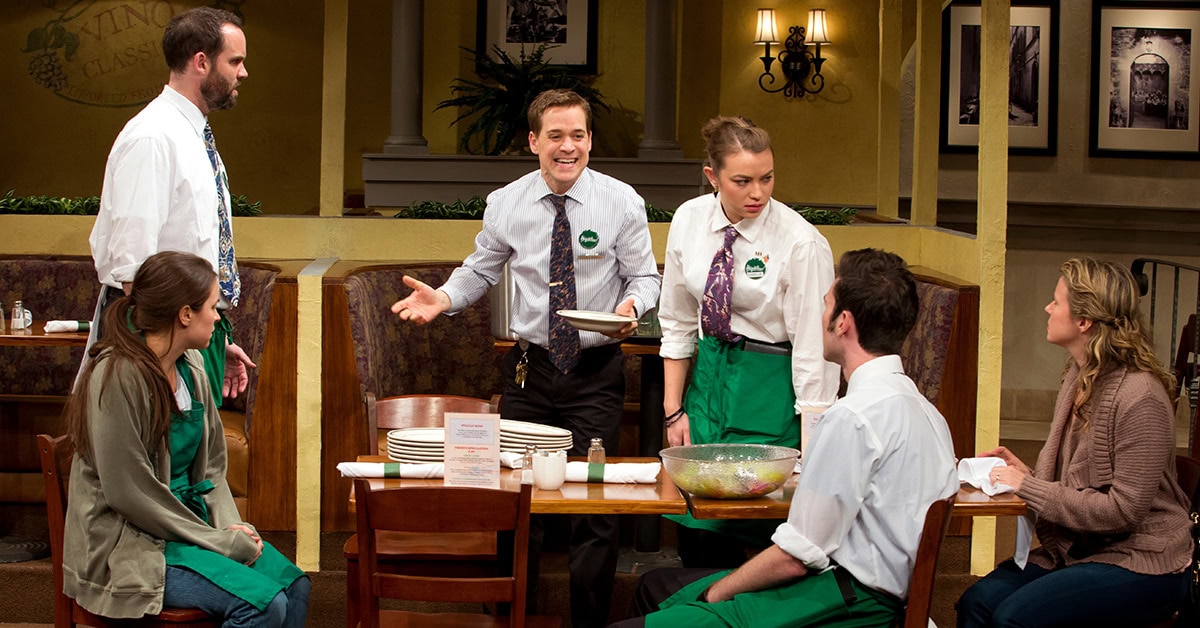
Inspired in part through her own experiences, Kat Woods’ Killymuck sheds light on the real-life class disparity between those living in Ireland.
Read on as we discuss other key influences behind this deeply personal solo show, and learn more about her writing process.
…
Killymuck tells the very real story of a young girl called Niamh as she navigates growing up in the benefits system in Ireland, and the differences between her upbringing in comparison to other children around her. What inspired you to tell Niamh’s story?
Killymuck is an autobiographical piece, so about me! I was inspired to write it because I was angry and frustrated. Frustrated at the middle class-dominated industry. Frustrated that my peers from wealthier backgrounds who have gone to Oxford or Cambridge have had no problem getting their voice heard in the industry, and that their career trajectory has taken flight much faster than my own. Frustrated that we, as the benefit class, are so often pigeonholed into the working-class narrative – our voices silenced and pushed aside for the bigger minority within the minority. We are the taboo, yet it is a very different upbringing. Also frustrated at myself for still feeling shame and a sense that I don’t belong in these spaces, in these buildings, or in this world.
This piece could be seen as quite a political statement about class disparity. Was this something you had wanted to do with this play?
It’s something that bled out of me onto the page as I wrote. I didn’t think I would ever write a political piece, although I felt compelled to write my truth. The meritocratic narrative that this present government pushes is highly flawed. This specific ideology is heavily biased and thrust through the gaze of privilege. Generally speaking, the ones that will reap the rewards of a meritocratic society will be the white, cis, middle class or upper working-class male, and we see this within our own local theatre communities. The narrative appears to be minority and class-washed. It omits oppression and how that systemically affects individuals in society. It sees a meritocracy as a fundamental way to achieving equality but ignores workplace sexism, class, racism and other minority focused oppressive barriers.
Instead of punishing the most marginalised section of society, this present government, and indeed our own localised Northern Irish Assembly, should be looking at new ways of creating a solution. Maintaining a fair job market and providing the necessary tools for children born into these environments to succeed in the education system and beyond. The starting blocks are never equal when you come from an impoverished background. We can start by dispelling the myth that the underclass are a subhuman section of society – for when you speak of the underclass, you speak of me. I am the benefit council estate kid. This is what we need to start implementing instead of punishing the poor for being poor.
What do you hope that audiences and performers gain from watching and staging your play?
I want people to start asking questions of the gatekeepers and demand change. When we stand together united to fight injustice, we make it harder for those in power to place the blame on us.
Is there any advice you would give to those wanting to stage their own production of Killymuck?
The play is written to be performed anywhere. It doesn’t need light or sound, and in fact we did a completely stripped back performance of it in a chapel room in a prison. Just do it with your full heart and enjoy the challenge.
When writing a play, what would you say your writing process is like?
I have absolutely no idea how I manage to write. I think the main part of my process is battling through the voice in my head telling me I can’t do it. It’s like I spent 90% of my time running after it in order to lock it away! When that does happen, depending on what I write, I will do some research and reading around the subject matter. With Killymuck, I went through dates of political significance from when I was born to present day; dates that I remembered but fact-checked to make sure that I didn’t make it up. I usually throw a first really crap draft together and send it to the goddess of dramaturgy, Louise Stephens. I think it is really important to find someone that you can trust to give you helpful feedback. It’s vital to have a person that gets your work not in a lick-arse way but in a constructive feedback way that doesn’t strip [out] who you are as a writer.
I also love to get my work up on its feet for an early preview. I am quite visceral in how I work, so seeing it really helps me to develop the story arc… I do a couple of these feedback sessions and they can be brutal, so sometimes I need to go back home to my Mammy after, but they are really important in order to get feedback that moves the play forward. Feedback and rewriting are key.
Do you have any works currently in progress and, if so, could you share a little something about it with us?
I am working on a piece with Tinderbox called Birds of Passage in The Half Light. It is about shame, the church and the state.
I am also under commission with The MAC and the Abbey Theatre, but these have yet to be announced.
…
If you’ve been inspired to put on your own production of Kat Woods’ piece find out more about licensing, and why not purchase a copy of the playscript too.
Please note that any opinions expressed in this interview are those of the individual author.

Plays with All-Female Casts

Bon Appetit! Shows Set in Restaurants

